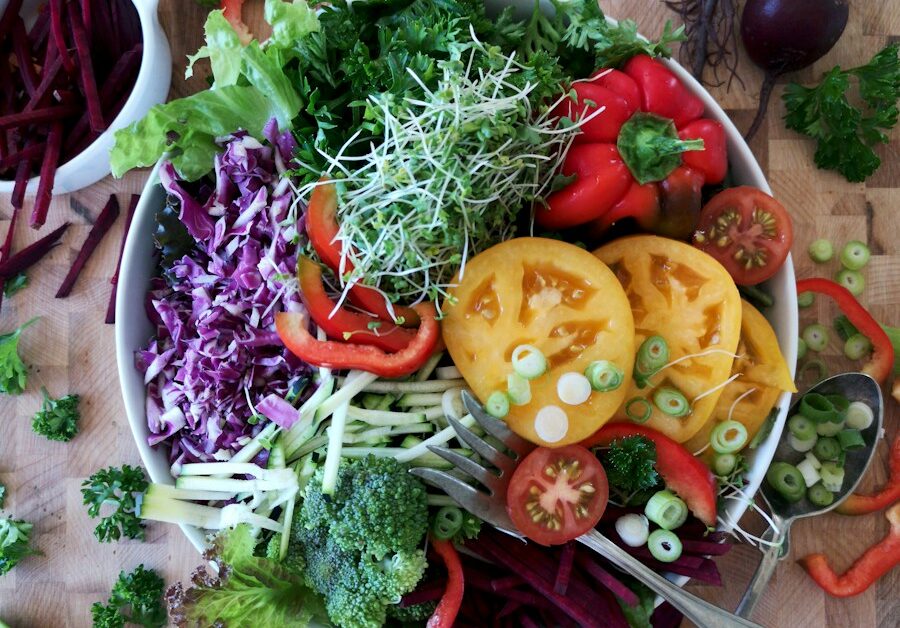Raw Vegetarian Diet: A Nutritional Powerhouse
A raw vegetarian diet, also known as a raw vegan diet, is a dietary approach that emphasizes the consumption of uncooked and unprocessed plant-based foods. This diet primarily consists of fruits, vegetables, nuts, seeds, and sprouted grains. While it may seem challenging to adopt at first, a raw vegetarian diet offers numerous benefits for both our health and the environment. However, it also comes with its own set of challenges that individuals need to be aware of. Let’s explore the benefits and challenges of a raw vegetarian diet.
The Benefits of a Raw Vegetarian Diet
A raw vegetarian diet provides a wide range of benefits that contribute to overall health and well-being. Here are some of the key advantages:
- Increased nutrient intake: Raw plant-based foods are rich in essential vitamins, minerals, and antioxidants. By consuming them in their raw form, we maximize the intake of these vital nutrients, which are often lost during cooking.
- Improved digestion: Raw foods are abundant in dietary fiber, which aids in digestion and promotes regular bowel movements. This can help prevent constipation and maintain a healthy digestive system.
- Weight management: A raw vegetarian diet is naturally low in calories and high in fiber, making it an effective approach for weight management. It can help individuals achieve and maintain a healthy weight while providing essential nutrients.
- Reduced risk of chronic diseases: The consumption of raw plant-based foods has been linked to a lower risk of chronic diseases such as heart disease, diabetes, and certain types of cancer. The high content of antioxidants and phytochemicals in these foods contributes to their protective effects.
- Increased energy levels: Raw foods are easily digestible and provide a steady release of energy throughout the day. Many individuals report feeling more energized and experiencing improved mental clarity after adopting a raw vegetarian diet.
The Challenges of a Raw Vegetarian Diet
While a raw vegetarian diet offers numerous benefits, it also presents some challenges that individuals need to consider:
- Food preparation: Raw food preparation often requires more time and effort compared to traditional cooking methods. Soaking, sprouting, and blending are common techniques used to enhance the digestibility and flavor of raw foods.
- Nutrient deficiencies: A raw vegetarian diet may be deficient in certain nutrients, such as vitamin B12, iron, calcium, and omega-3 fatty acids. It is important to carefully plan meals and consider appropriate supplementation to ensure adequate nutrient intake.
- Social challenges: Following a raw vegetarian diet can be socially challenging, especially when dining out or attending social gatherings. Limited options and potential misunderstandings from others may require individuals to be prepared and proactive in communicating their dietary choices.
- Food safety concerns: Raw foods carry a higher risk of foodborne illnesses compared to cooked foods. It is crucial to handle and store raw foods properly to minimize the risk of contamination.
- Seasonal limitations: Depending on the geographical location, the availability of fresh and organic raw foods may vary throughout the year. This can pose challenges in maintaining a diverse and balanced diet.
Success Stories and Case Studies
Despite the challenges, many individuals have successfully adopted and thrived on a raw vegetarian diet. One notable success story is that of Angela Stokes, who lost over 160 pounds and regained her health by following a raw vegan lifestyle. Another case study conducted by the American Journal of Clinical Nutrition found that individuals following a raw vegetarian diet experienced significant improvements in blood pressure, cholesterol levels, and markers of oxidative stress.
Conclusion
A raw vegetarian diet offers a plethora of benefits, including increased nutrient intake, improved digestion, weight management, reduced risk of chronic diseases, and increased energy levels. However, it also comes with challenges such as food preparation, potential nutrient deficiencies, social challenges, food safety concerns, and seasonal limitations. By understanding and addressing these challenges, individuals can successfully adopt and thrive on a raw vegetarian diet, reaping its many rewards for their health and the environment.
